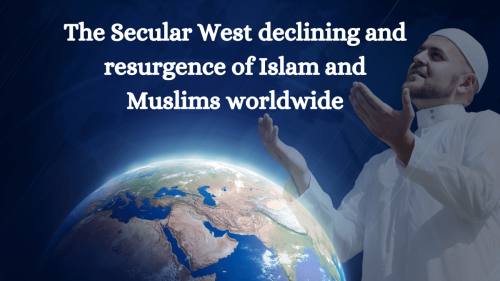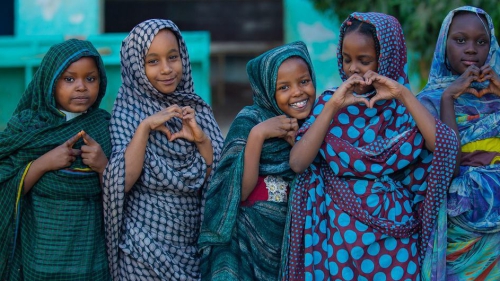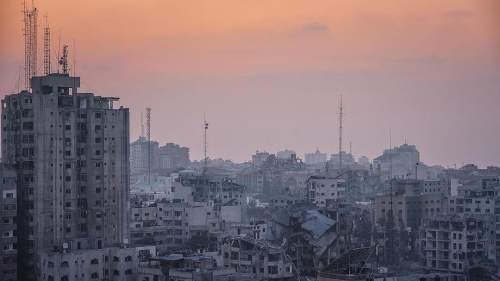Taleban still dogged by accusations on the status of women
The Taleban militia, in control of 90 percent of Afghanistan, suffered another blow in what it no doubt by now considers an international propaganda war against it, when UN special rapporteur for violence against women, Radhika Coomaraswamy, told a press conference upon her return from a week-long investigating mission in the Afghanistan, that the Taleban were responsible for the systematic abuse of women's rights. While the Taleban continues to claim Islam as the basis for its domestic policies, the substance of Coomaraswamy's claims undercuts the Taleban defense by calling attention to issues whose prevalence seem to contradict Islam.
Coomaraswamy, formerly a Sri Lankan lawyer, said Afghanistan was pervaded by inequality and discrimination against women that is considered normal by many Afghanis, as reported by several news agencies. The UN official reported that abuses occurred in almost all aspects of life, including physical security, health, employment, education and freedom of movement and association. "We found systematic discrimination in areas controlled by the Taleban," she told reporters. While Coomaraswamy said the situation in areas controlled by opposition forces was slightly better, she reminded opposition leaders that when they controlled the country, women suffered even more violence than under the Taleban.
Although Coomaraswamy admitted that many in Afghanistan see the role of women differently than in other parts of the world, she linked much of the discrimination to official edicts passed by Taleban authorities and the allegedly brutal enforcement of such edicts by religious police acting under the Department for the Propagation of Virtue and the Suppression of Vice.
But she said some changes were evident and cited cases where widows were being allowed to work in the health sector and where some girls were being allowed to receive primary education in local mosques. Coomaraswamy nonetheless called for the dismantling of the religious police whom she accuses of violence against women. In many cases, she said, women are publicly beaten for adultery when they report cases of rape. She said edicts that restricted a woman's right to employment and education should be withdrawn and further called for the investigation of rumors of rising prostitution rates and trafficking of women.
While the Taleban has not yet publicized any official reaction to the most recent allegations, it has previously said it is the victim of a smear campaign. In a statement issued at peace talks in Tashkent, Uzbekistan in August, Taleban leader Mullah Ameer Khan Motaqi said, "Our concept of women's rights is not what people have propagated against us." He stressed the fact that cases of rape and arbitrary violence against women have declined since the arrival of the Taleban. In an official statement to the United Nations on August 27, the Taleban said no official decrees have been passed which prohibited women from "receiving education or engaging in gainful employment," but said that "certain conditions" had to be met and alluded to its "limited resources."
As admitted by Coomaraswamy, the Taleban has made efforts to better the lot of women in Afghanistan. The August 27 Taleban statement says a new institution exclusively devoted to the education of women in the medical field has recently been opened in Kabul. In October of last year, supreme Taleban leader Mullah Muhammad Omar issued a series of decrees based on Islamic law that were designed to protect the rights of married women. The decrees contradicted many traditional Afghani customs by proclaiming a woman's right to inheritance and outlawing forced marriages. But a BBC report from October 6, 1998, says the decrees were conspicuously silent on laws banning women from the workplace and from going to school. The Taleban says such rights will be reinstated when there is an end to the civil war in Afghanistan.
The issue over women's rights is at the center of the controversy over whether the Taleban should be internationally recognized as the government of Afghanistan. As such the allegations and any moves on the part of the Taleban to counter the allegations cannot be taken in isolation from their political implications. For example, BBC correspondent in Kabul William Reeve told the BBC that the Taleban's attempts at reform of women's rights must perhaps be taken in light of its desire to secure international recognition. But the Council of Cooperation of Afghan Refugees in Northern California, in a letter to the UN protesting its refusal to recognize the Taleban, said that in its condemnation of the Taleban, the UN was "serving as a tool to promote the geopolitical interests of those who want to enslave Afghanistan."
As both international observers and the Taleban suspect each other of fabricating stories to discredit the other's allegations, it is difficult to ascertain the true plight of women in Afghanistan. It is possible that observers are simply painting a foreboding image of the Taleban in order to blacken the name of Islam as a religion, as the Taleban seem to imply. But it is likewise possible that the Taleban is not living up to the ideals of Islam by which the government justifies itself.
The Taleban says it is committed to the education of women, the right of employment and the health and physical well being of women. But Coomaraswamy's findings seem to indicate a lack of commitment to such ideals. Perhaps if Coomaraswamy was a US national with a track record of Western subservience, her claims could be more easily discounted. But the UN special rapporteur is a Sri Lankan national and has additionally been as unremitting on Western countries for violation of women's rights as she has been on countries in the developing world. In June 1998, she publicly accused the United States of permitting sexual violence against women in the federal penitentiary system.
A look back at the recent history of the Taleban's war with the international media reveals that there has perhaps been misreporting or at least an overemphasis on negative aspects and a failure to report positive developments. And while the Taleban's human rights record is not a valid basis for international isolation given the acceptance of other countries with similar or worse records, human rights concerns, especially with regards to women, remain an objective concern in Afghanistan.
Zakariya Wright is a staff writer at iviews.com

















